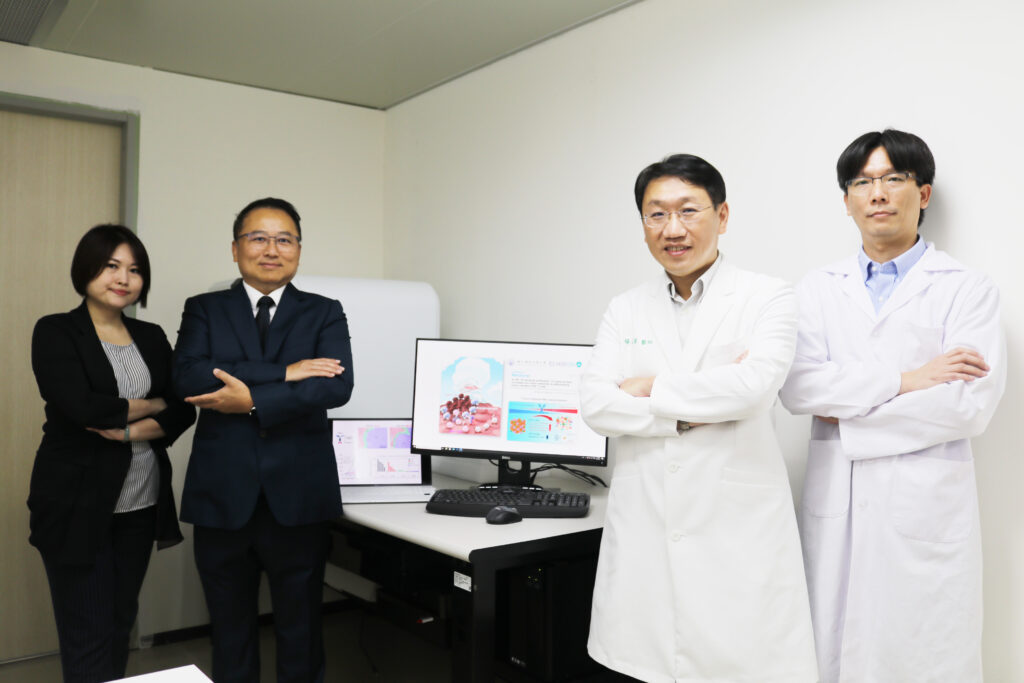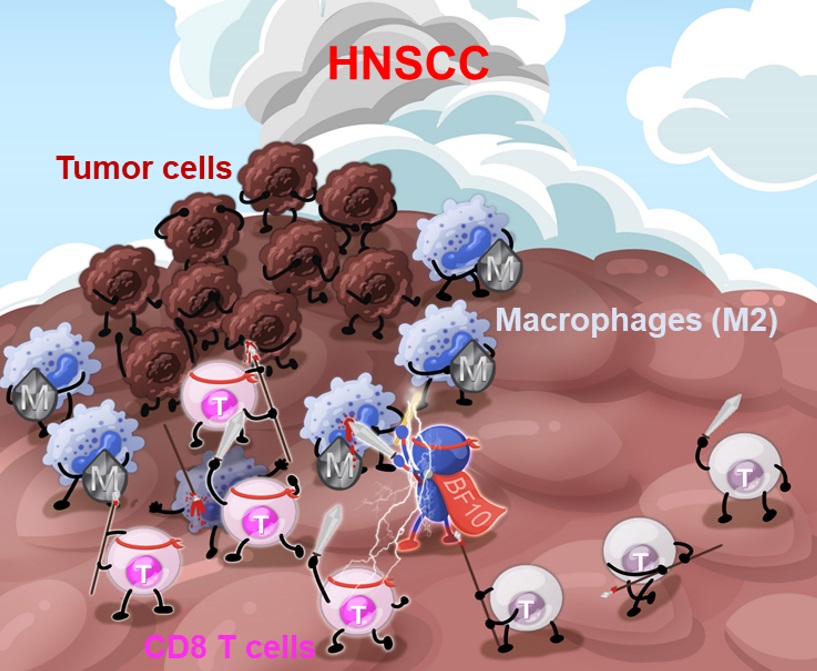
National Yang Ming Chiao Tung University (NYCU) collaborated with Elixiron Immunotherapeutics Inc. to develop a dual-functional immune antibody (a tumor-associated macrophage antibody and interleukin-10 fusion protein) for head and neck cancer treatment.
The Advanced Therapeutics Research Center of NYCU collaborated with the Taiwan immunotherapy developer Elixiron to create a novel fusion protein drug explicitly designed to treat head and neck cancer. This drug combines a tumor-associated macrophage antibody and interleukin-10 (IL-10), which has been proven to effectively reduce tumor size in animal trials, and relevant research outcomes were published in the international journal Cell Reports Medicine in August 2023.
The exploration of immunotherapy has recently become a prominent focal point for cancer treatment. Immunotherapy stimulates the immune system or immunocytes to recognize and attack cancer cells more effectively. Although immunotherapy has been widely applied in cancer therapy, the response to treatment for specific cancers is still insufficient. This shortcoming prompts researchers to develop novel immunotherapy drugs with more potent effects.
Utilizing the company’s dual-function antibody development platform, the research team engineered a fusion protein drug that merges the tumor-associated macrophage antibody CSF-1R with interleukin-10. This innovative therapeutic not only modulates macrophage activity within the tumor microenvironment (TME) but also stimulates the activation of T cells in the same milieu, thereby producing a synergistic therapeutic outcome.

Dr. Muh-Hwa Yang, a principal investigator of the research team at the NYCU Institute of Clinical Medicine, explained that cancer cells ensure their survival by releasing various growth factors, fostering an environment conducive to their proliferation. Tumor microenvironment (TME) are crucial factors in tumor metastasis and proliferation. In the case of head and neck cancer TME, macrophages are common targets affected by cancer cells. Abnormal status of these macrophages results in an unexpected outcome: they suppress immune activity instead of promoting tumor proliferation, consequently impeding the efficacy of immunotherapy.
Dr. Yao-Wen Chang, a research fellow at the Advanced Therapeutics Research Center and a lead author researcher of this research, highlighted efforts by scientists to optimize the therapeutic impact of cancer drugs. This involves elevating drug concentrations within tumors while mitigating associated side effects. In animal trials, the research team observed the effective delivery of pharmaceutical components to tumor microenvironments (TMEs) using the developed drug. This enhanced the anticancer activity of T cells while averting off-target effects in other tissues. Moreover, the novel drug can be co-administered with existing immunotherapy antibodies to achieve synergistic effects.
Dr. Hung-Kai Chen, the Chairman and CEO of Elixiron Immunotherapeutics Inc., highlighted that improving T-cell response in various tumor microenvironments is a crucial challenge in modern tumor immunotherapy.
Dr. Jin-Wu Tsai, Dean of Research and Development of NYCU, commented that scientific research as the driver of novel treatment and drug development has become a global trend. In line with this trend, NYCU has founded the Advanced Therapeutics Research Center. The collaboration with Elixiron has produced remarkable achievements, bolstering the confidence of academics in engaging in industry–academia collaboration to explore innovative drugs and treatments. NYCU anticipates the development of more groundbreaking pharmaceuticals in Taiwan, thereby serving the best interests of patients with cancer.

